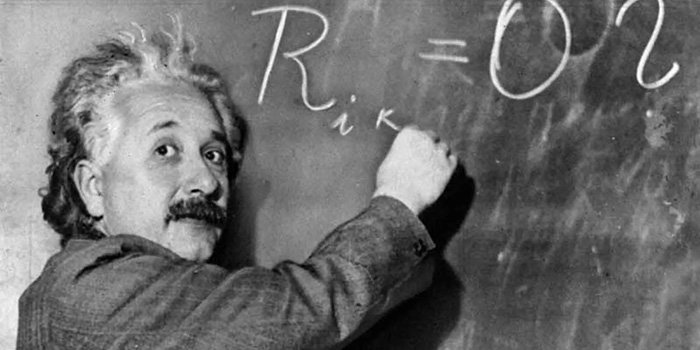Quiz Topic Sheet
Key Scientific Publications
Scientific publications, whether books, manuscripts, or articles, have played a fundamental role in the dissemination and validation of knowledge. They allow researchers to share their discoveries, challenge ideas, and expand collective knowledge. By providing a rigorous framework for peer review, they ensure the credibility of scientific advancements. For society, these publications are essential because they transform discoveries into practical applications, driving technological, medical, and industrial progress, while enriching our understanding of the world around us.
Advertisement
Physics
- Isaac Newton – Mathematical Principles of Natural Philosophy (1687) : This foundational work presents the laws of motion and universal gravitation, establishing the basis of classical mechanics.
- Albert Einstein – On the Electrodynamics of Moving Bodies (1905) : Einstein introduces special relativity, transforming our understanding of space and time.
- Max Planck – On the Distribution of Energy in the Normal Spectrum (1900) : Planck establishes the foundations of quantum physics by introducing the concept of energy quanta.
Astronomy/Astrophysics
- Nicolaus Copernicus – On the Revolutions of the Celestial Spheres (1543) : Copernicus proposes the heliocentric model, placing the Sun at the center of the solar system.
- Galileo Galilei – The Starry Messenger (1610) : Galileo reports his observations of Jupiter’s moons, confirming the heliocentric model.
- Johannes Kepler – The Harmony of the World (1619) : Kepler presents his laws of planetary motion, showing that the planets follow elliptical orbits.
Biology
- Charles Darwin – On the Origin of Species by Means of Natural Selection (1859) : Darwin presents the theory of evolution, explaining how species adapt to their environment.
- Gregor Mendel – Experiments on Plant Hybrids (1866) : Mendel introduces the laws of heredity, laying the foundations of modern genetics.
- Lynn Margulis – Symbiosis in Evolution (1981) : Margulis explains that the evolution of complex cells occurred through the integration of simpler cells.
Medicine/Physiology
- Andreas Vesalius – On the Structure of the Human Body (1543) : Vesalius revolutionizes anatomy with an accurate description of the human body.
- Louis Pasteur – Memoir on Alcoholic Fermentation (1857) : Pasteur demonstrates that microorganisms cause fermentation, founding the field of microbiology.
- Alexander Fleming – Discovery of Penicillin (1929) : Fleming reveals the antibiotic properties of penicillin, launching a revolution in medicine.
Chemistry
- Dmitri Mendeleev – Principles of Chemistry (1869) : Mendeleev presents the periodic table, classifying elements by their properties.
- Antoine Lavoisier – Elementary Treatise on Chemistry (1789) : Lavoisier introduces the concept of mass conservation, modernizing chemistry.
- Linus Pauling – The Nature of the Chemical Bond (1939) : Pauling explains covalent bonding, clarifying the molecular structure.
Mathematics
- Euclid – The Elements (circa 300 BCE) : This work presents a coherent system of geometry, influencing mathematics for centuries.
- Pierre de Fermat – The Works of Fermat (1679) : This collection contains Fermat's famous theorem, stimulating research in arithmetic.
- Carl Friedrich Gauss – Arithmetical Investigations (1801) : Gauss revolutionizes number theory and introduces the concept of congruence.
Earth Sciences
- James Hutton – Theory of the Earth (1788) : Hutton explains how slow processes, such as erosion, shape the Earth over time.
- Alfred Wegener – The Origin of Continents and Oceans (1915) : Wegener proposes continental drift, anticipating the theory of plate tectonics.
- Charles Lyell – Principles of Geology (1830) : Lyell argues that present geological processes explain ancient formations.
- Rachel Carson – Silent Spring (1962) : Carson exposes the impact of pesticides on the environment, sparking the modern ecological movement.
Advertisement
Quiz questions preview
-
Polymath and universal thinker, he is the author of the "Codex Leicester" around 1510.
Galilée | Francis Bacon | Leonardo da Vinci | Nicolas Copernic -
Which physicist wrote the paper “On the Theory of the Energy Distribution Law in the Normal Spectrum” in 1900?
Max Planck | Werner Heisenberg | Albert Einstein | Niels Bohr -
Which scientist wrote “On the Antibacterial Action of Cultures of Penicillium” in 1929?
Alexander Fleming | Edward Jenner | Louis Pasteur | Robert Koch -
Which scientist wrote “The Mechanics” in 1599?
René Descartes | Leonardo da Vinci | Francis Bacon | Galileo Galilei -
What concept did Niels Bohr present in “On the constitution of atoms and molecules” in 1913?
The nuclear fission | An atomic model | A wave-corpuscle duality | The uncertainty of electronic positions


